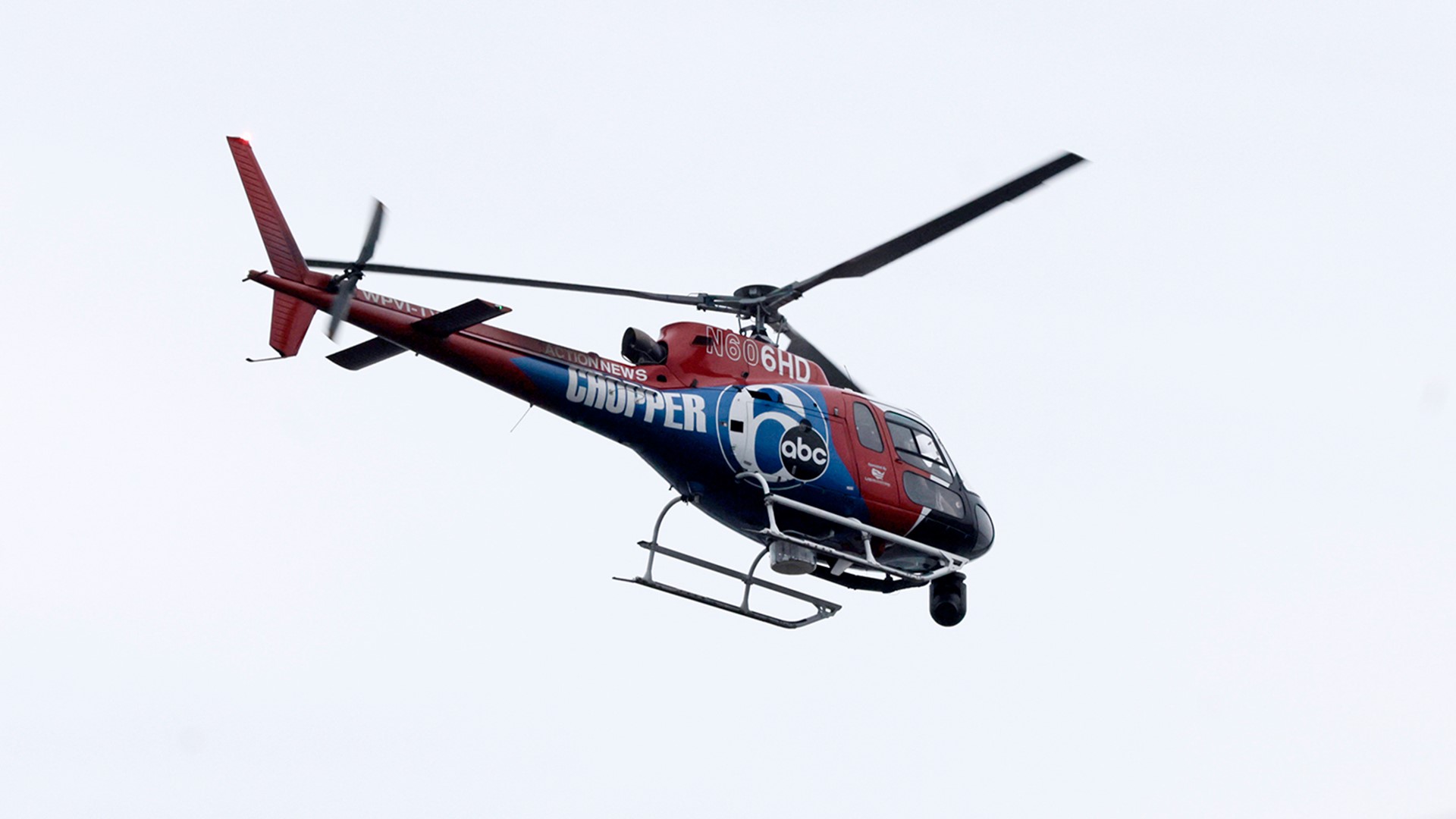WASHINGTON TOWNSHIP, N.J. — A television news helicopter that crashed in a southern New Jersey forest last month, killing the pilot and a photographer, had no engine problems that would have prevented normal operation, federal investigators said Wednesday.
The National Transportation Safety Board released a preliminary report on the crash of WPVI-TV's “Chopper 6” helicopter on the evening of Dec. 19 in the Wharton State Forest in Washington Township, Burlington County.
Investigators said the helicopter was returning to the Northeast Philadelphia Airport after an assignment to report on Christmas lights just after 8 p.m. that night. Preliminary data provided by the Federal Aviation Administration showed that it was flying at about 1,000 feet (300 meters) when it drifted right, then began to descend, picking up speed for the next couple of minutes before crashing.
The report described the wreckage of the American Eurocopter Corp. AS350B2 and said the engine had separated from the airframe and was damaged by the post-impact fire.
“No anomalies of the engine were discovered that would have precluded normal operation,” the preliminary report said. A final report could take a year and a half to complete, investigators said last month.
Killed in the crash were the pilot, 67-year-old Monroe Smith of Glenside, Pennsylvania, and a photographer, 45-year-old Christopher Dougherty of Oreland, Pennsylvania.
The flight was the third of the day for the helicopter and crew, and the helicopter had been refueled before the accident flight, investigators said.
The crash site is part of the New Jersey Pinelands, a million-acre (400,000-hectare) wilderness area that stretches across more than seven counties and features dense woods, rivers, and rare plant species.

